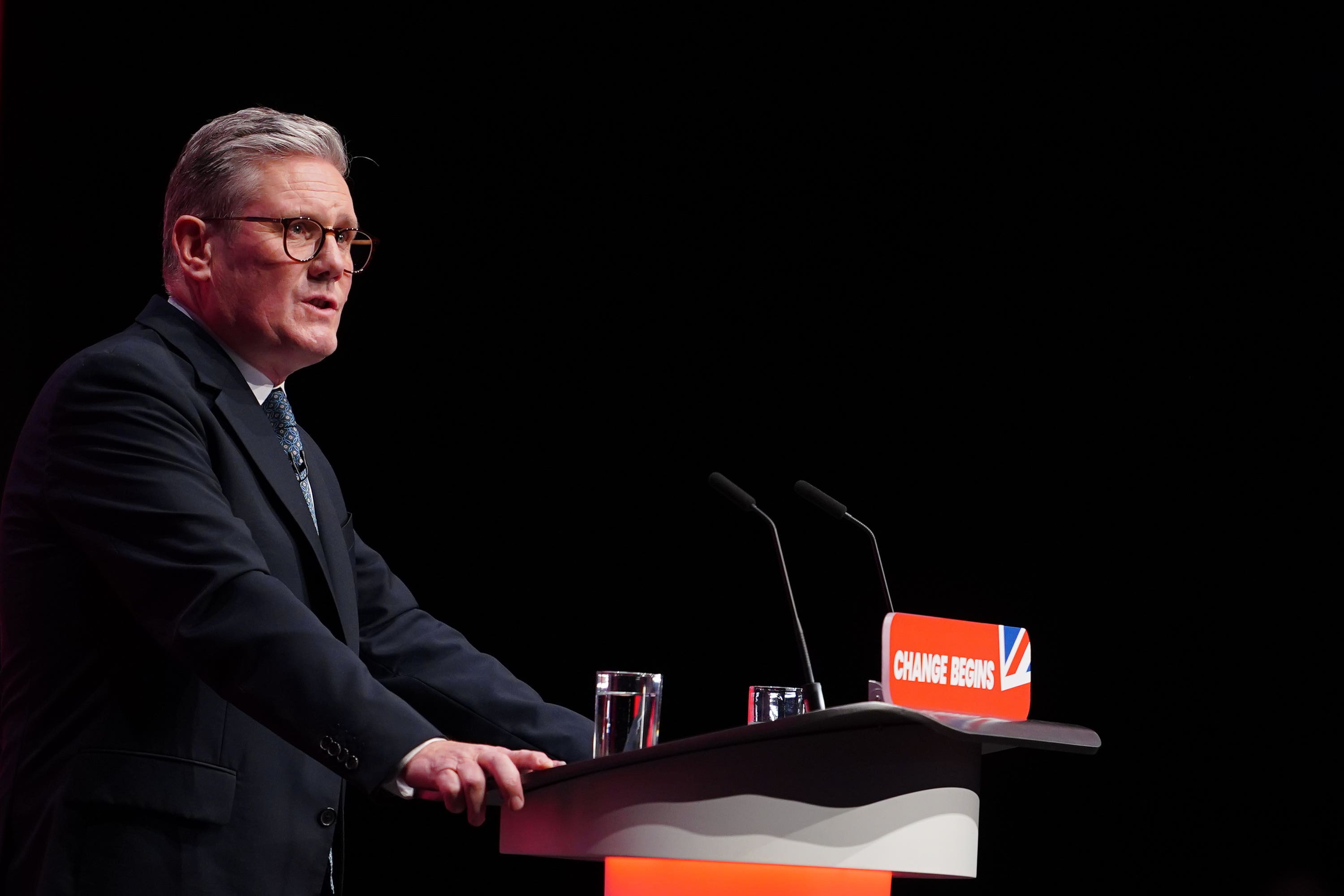Starmer is right to grasp the nettle of benefits reform – even if it stings him
Though Labour’s fingers were burned badly by the winter fuel row, the government must once again grapple with another controversial policy to pave the way for growth, writes Andrew Grice


Despite the huge controversy over the decision to means-test the winter fuel allowance, Keir Starmer has begun another difficult battle – to cut welfare spending.
The government will target the huge rise in sickness benefits since the pandemic. Some 2.8 million people are out of work due to ill-health, 500,000 more than in 2019, according to the Office for National Statistics. About 85 per cent are long-term sick, with a big rise among 18–24-year-olds and 50–64-year-olds. Musculoskeletal (MSK) and mental health issues account for around half of all reported conditions.
Spending on working-age health-related benefits, which stood at £36bn in 2019-20, is forecast to jump to £63bn by 2028-29.
This is largely a UK phenomenon. NHS waiting lists are a contributory factor. I suspect that long Covid, a forgotten epidemic affecting an estimated 2 million people, is also part of the problem. Shamefully, I don’t hear Labour or Tory politicians talking about that.
Starmer told BBC Radio 4 today that people on long-term sickness benefits should be made to look for work if they are able to, saying: “I think the basic proposition that you should look for work is right. Obviously, there will be hard cases … but we also want to support that so that more people can get into work.”
The prime minister is right to talk about this now; he has learnt a painful lesson from the winter fuel allowance row. Rachel Reeves, the chancellor, dropped that bombshell out of the sky without warning in her July Commons statement, claiming the Conservatives had left behind a £22bn “black hole”. The ground had not been prepared, making it harder for many to swallow. Starmer is now rolling the pitch for welfare reforms, which I understand will be a big theme of the Budget on 30 October.
His message will not be welcomed by many in his party, the trade unions, and groups representing the disabled, who will understandably be anxious. Yet Labour’s approach is more subtle than the divisive “shirkers versus strivers” mantra, begun by the former chancellor George Osborne, which demonised claimants. That was reprised this year when Mel Stride, the former work and pensions secretary, said the UK’s approach to mental health was in danger of having “gone too far” and “normal anxieties of life” were being labelled as an illness.
The Tories’ punitive stance was mainly designed to save money. They also saw a political benefit with their natural supporters in suggesting claimants were skivers – unfair, since many of the unemployed want to work. Jobcentre offices were hardly welcoming places. Staff were dubbed “benefit police”, and work coaches had targets to get a certain percentage of claimants off benefits.
The Tories offered lots of sticks but few carrots. Labour wants a cultural change, so jobcentres must provide genuine support to help people back into work. A genuine mix of tough and tender.
Liz Kendall, the work and pensions secretary, promises the biggest reforms to employment support in a generation. She told the Labour conference today there would be “an end to the culture of jobcentres focusing on monitoring benefits. Instead, a new jobs and careers service to help people get work and get on at work. New plans to join up support for work, health and skills so we tackle the root causes of worklessness.” England’s metro mayors will be closely involved, which makes sense.
I believe this will have a better chance of working than the Tory way, which failed to stop the bill from ballooning. Yes, there will be conditionality – and more of it, Starmer suggests. That will stick in the craw for many. However, the welfare state has always been built on responsibilities as well as rights.
Persuading the party to support the drive won’t be easy. To some MPs and unions, it looks like the government’s first two big decisions were to single out pensioners and benefit claimants. Some voters will be similarly puzzled.
The unease was illustrated today when the Labour conference voted for a motion, tabled by the Unite union, calling for the decision on the winter fuel allowance to be reversed. “This is not what people voted for,” said Sharon Graham, Unite’s general secretary.
The conference vote is not binding on the government, but it is highly symbolic. It will put pressure on Reeves to provide help in her Budget for vulnerable people with their energy bills, including pensioners who will just miss out on the allowance.
Although ministers’ fingers were badly burnt by the winter payment row, they could not ignore the rise in sickness benefit claims; the numbers are unsustainable. The potential savings in the long term are huge (unlike on the winter allowance), allowing the government to switch spending to struggling public services. Potentially, many claimants will be better off and happier in work; tax revenues will rise.
As Tony Blair discovered, reforming welfare is difficult and controversial. But Starmer is right to grasp this nettle, even though it will give him another nasty sting.





Join our commenting forum
Join thought-provoking conversations, follow other Independent readers and see their replies
Comments